Nawaaz Ahmed’s characters in "Radiant Fugitives" grapple with identity amidst slow political progress and fallout from their personal choices
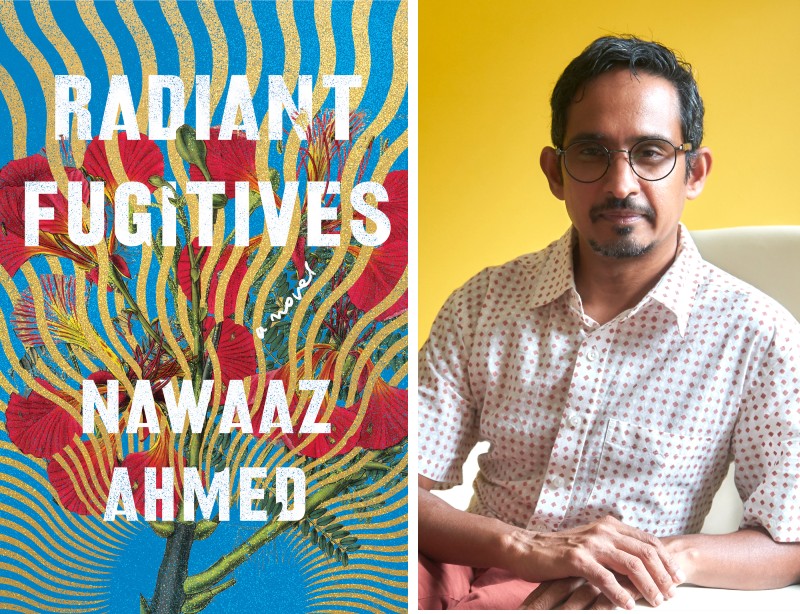
What motivates us? What power do we have over the trajectory of our lives? How can people be so close and so far away from each other at the same time?
These questions and many others linger as the story of a divided family and the people in their orbit unfolds in Radiant Fugitives. This first novel by Nawaaz Ahmed, a graduate of the University of Michigan’s MFA program, is told by Ishraaq, who is the newborn baby of Seema, a mother estranged from her family for the choices she’s made. Ishraaq serves as a keen, omniscient observer who understands each person’s perspective and how we are all driven by love or fear or both. This unique position of the narrator shows the reader how each person contributes to events and the emotions surrounding them.
Seema takes on many roles in her life, starting as her father’s star performer in poetry recitations and changing as she falls from his graces. She goes on to come out as a lesbian, work as a political activist, and then marry a man she meets at a protest. Amidst her experiences, the broader climate of political progress with Obama’s presidential election, Kamala Harris’ rise, and expressions of islamophobia emphasize identity politics. The whole time, she struggles to find her place and find acceptance, as Ishraaq narrates:
Author, Screenwriter, and U-M Alum Christopher Cosmos' Debut Novel Covers Characters Caught Up in Greece’s WWII Fight

Author and U-M alum Christopher Cosmos brings alive the historical and personal drama of the Greek resistance during World War II in his new novel, Once We Were Here. When Greece refuses to surrender to Mussolini’s demand for occupation in 1940, the decision sets off a series of events that irrevocably alter the characters’ lives.
The narrative starts in 2014 in Michigan and is told by a grandfather to his grandson. By looking back in time and telling the story, Papou reveals the family’s resilience, romances, losses, and triumphs during the war. The novel is bookended by scenes at this later date. The grandfather starts the tale with a view of what life is like in Agria, Greece on the Aegean Sea before the war. Two friends Alexandros—Alexei —and Constantinos—Costa—have just turned 18, both born on the same night. Alexei is a fisherman and reflects on how a day on his boat feels:
The characters in Erin Hahn’s coming-of-age novel "Never Saw You Coming" grapple with beliefs and trauma in Michigan’s Upper Peninsula
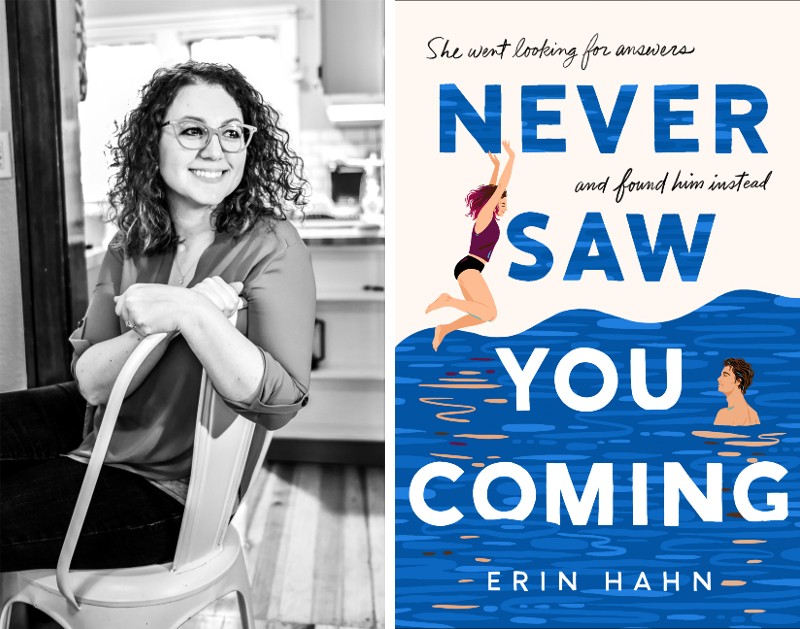
The line between right and wrong is not always clear. Erin Hahn’s new young adult novel, Never Saw You Coming, illustrates the dilemmas that people face when they are told one thing and experience another, leaving them to sort out what they believe.
In the book, 18-year-old Meg Hennessey learns several family secrets at once and goes on a journey to make sense of it all. She grew up in Ann Arbor and travels to Marquette, Michigan, to meet with relatives she previously did not know she had. There, she meets Micah Allen, who likewise has a complicated past. The two of them find an immediate connection complete with witty banter, physical attraction, and outdoor adventures. Chapters alternate between each of their perspectives.
As young adults going through new situations and developing strong feelings for each other, Meg and Micah face uncertainties about whether to listen to religious advice or to follow their intuitions. Purity and abstinence are highly valued in the church, and the pair meets scrutiny even when trying to support church members and follow their values.
Meg reflects, “Before Marquette, I was only a sinner in my heart. Now I’m … out there. Like toothpaste all squeezed out of the tube. I can’t be put back in. And I don’t think I want to be.” She reconsiders the good that can come from bad situations. Her parents’ circumstances are among those situations, and she wonders about the concept of sin:
If God brought my parents together that one time, just to make me, and if it was a blessing planned by God, how could it be a sin? Are sins just blessings being played in God’s long game?
Both Meg and Micah grow and form their own perspectives as they face numerous challenges.
Hahn lives in Ann Arbor, and Never Saw You Coming is her third book. I interviewed her about writing this novel, the choices she made in it, and what’s coming up next for her.
Frosting takes the cake in Ann Arbor blogger Bernice Baran’s new book about sugary delights

Are you a frosting person or a cake person?
I’ve heard people say that one or the other is the reason to eat cake. Ann Arbor blogger and baker Bernice Baran answers that question with frosting in her new book, Frosted.
Thirteen recipes for buttercreams, cream cheese frosting, meringues, Bavarian cream, chocolate ganache, and others are scrumptiously employed to coat and fill layer cakes, sheet cakes, cupcakes, cookies, brownies, bars, breads, and tarts throughout the book. The 60 recipes combine flavors like a Frosted Animal Cracker Cake pictured on the book’s cover, the Chocolate Caramel Macchiato Cookies, Almond Raspberry Cupcakes, and Cookies & Cream Sweet Rolls. The base frosting recipes include variations depending on the flavors for each baked good. Baran also embraces classics like Dark Chocolate Marble Cake, Gingerbread House Cookies, and Chocolate Hazelnut Silk Pie.
Throughout Frosted, Baran nods to her heritage with the recipe for Diplomat Cream from her mother and Hungarian Dobos Torte. Each recipe offers a paragraph about why Baran chose it, how it became part of her repertoire, what is unique about it, or which occasion calls for the treat. With one (or more!) kinds of frosting or sauce, plus the cake or other base, for each recipe, each dessert has many ingredients and steps that appear very worth it from the mouthwatering photographs.
Baran keeps a website to document her baking and sends out an email newsletter. Pulp interviewed her about how she became a baker, what writing Frosted involved, and what inspires her.
Kim Fairley’s Memoir "Shooting Out the Lights" Tells the Story of Navigating Her First Year of Marriage and an Unwanted Guest
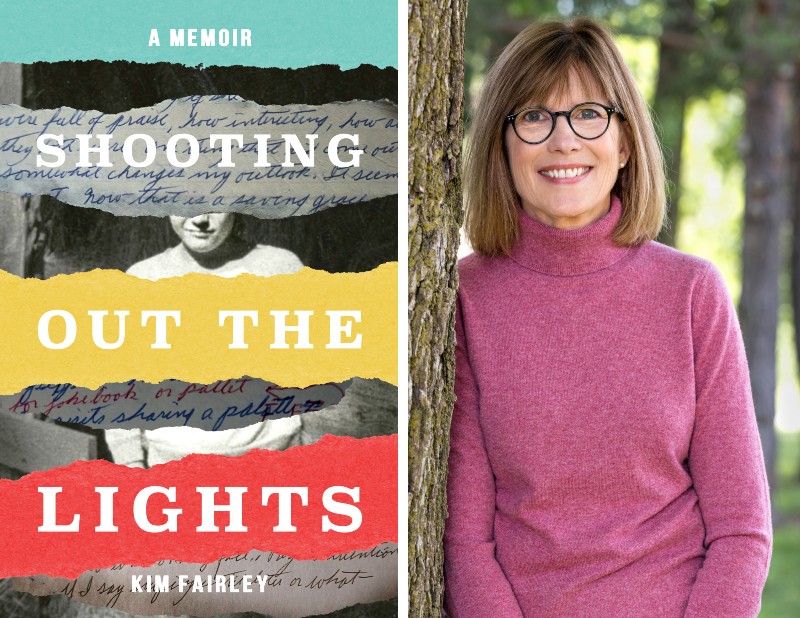
Ann Arbor artist and writer Kim Fairley recalls the early days of her marriage to Vern Fairley and a visit from an unwelcome guest in her new memoir, Shooting Out the Lights. This fast-moving book focuses on what it was like to start a marriage amidst a big age gap, the aftermath of tragedy, and the contentious circumstances of an unrelated child who comes to stay with the couple. Fairley tells the story with humor and tenderness.
While Fairley quickly becomes pregnant at 25 after they married in 1982, the memories of Ben, Vern’s son who died in an accidental shooting, haunt them. Vern agrees to take in Stanislaus, an 11-year-old son of a friend, and their newlywed days are interrupted. The unwanted responsibility forces the couple to face what happened in the past and look ahead to their growing family.
A relic of the past is Ben’s bedroom, which had remained largely the same since his death. Fairley considers cleaning out the room in preparation for the new baby. She reflects on the task and its larger implications:
Does it matter to leave a legacy? My mother, jokingly, always said she wanted her endless pile of laundry done before she died. My father wanted to be missed by my mother. Maybe all that mattered was the here and now. Nobody two hundred years in the future would care a whit about any of us. It was the reality of Vern’s age and the recognition that he wouldn’t live forever that was getting to me.
Fairley is forced to confront change and mortality amidst the joy of starting a family, and she looks back with the clarity of time. She adds, “Vern had contradictory impulses, as we all do, about whether to hang on or let go, preserve or move forward.” The dilemma is relatable, but it doesn’t make the choice any easier.
Shooting Out the Lights is Fairley's second book. I interviewed her about what it was like to write this story.
Carmen Bugan's essay collection articulates how poetry is an instrument of resistance
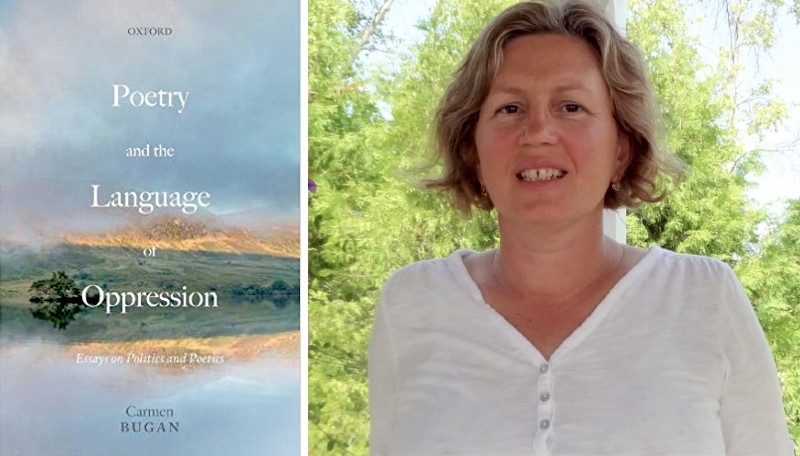
Carmen Bugan wields writing to understand and push back against the oppression and repression that she suffered while growing up in Romania in the 1970s and '80s and observed in her life and research. In her new book, Poetry and the Language of Oppression: Essays on Politics and Poetics, she writes:
This personal background experience gave me a first-hand knowledge of the power of language—how it can be used as an instrument of oppression and how it can be used as an instrument of resistance. That knowledge has shaped my voice as a writer.
Language is on the one hand very damaging and on the other very powerful. Bugan’s writing demonstrates her resilience and courage to nevertheless express herself when facing oppression.
Erin A. Craig’s "Small Favors" conjures dark forces in a reimagining of Rumpelstiltskin
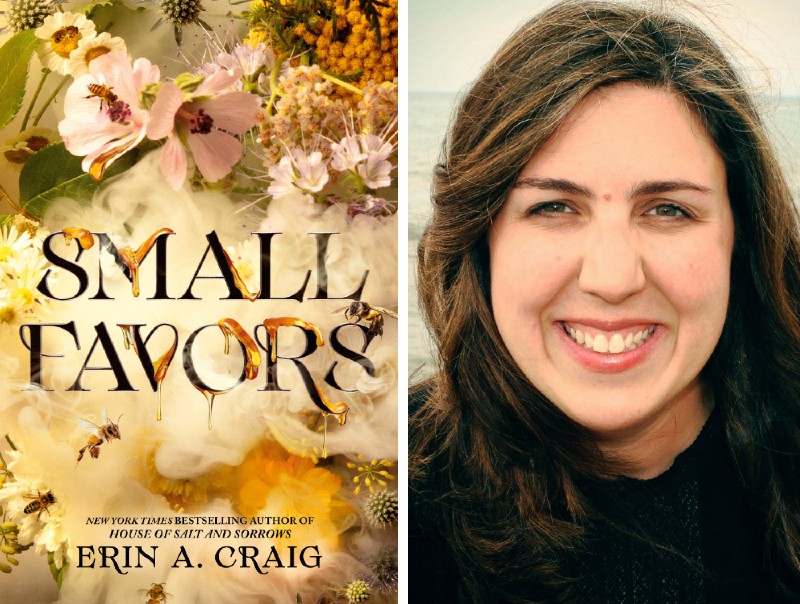
The cover of YA author Erin A. Craig’s new novel, Small Favors, looks deceptively bright with flowers, bees, and honey dripping off of the letters in the title. Yet what sounds too good to be true just might be, as character Ellerie Downing learns in this reimagining of the fairy tale, Rumpelstiltskin.
The setting of Amity Falls is a small, remote settlement in the Blackspire Mountains where neighbors rely on each other for their various skills, from carpentry to poultry farming. The Downing family are apiarists. They produce honey and also bake delectable honey cakes.
This well-balanced community starts to fragment when people are killed on trips out of town, crops go bad, and accusations of wrongdoing multiply. Initially thought to be an issue with oversized wolves, it becomes clear that something more sinister is stirring and seeking to control the people, something that gives gifts in exchange for favors.
Ellerie’s twin brother, Sam, describes an early encounter with the dark creatures to Ellerie:
U-M Professor David Potter looks at history and politics to understand radical change in his new book, "Disruption"
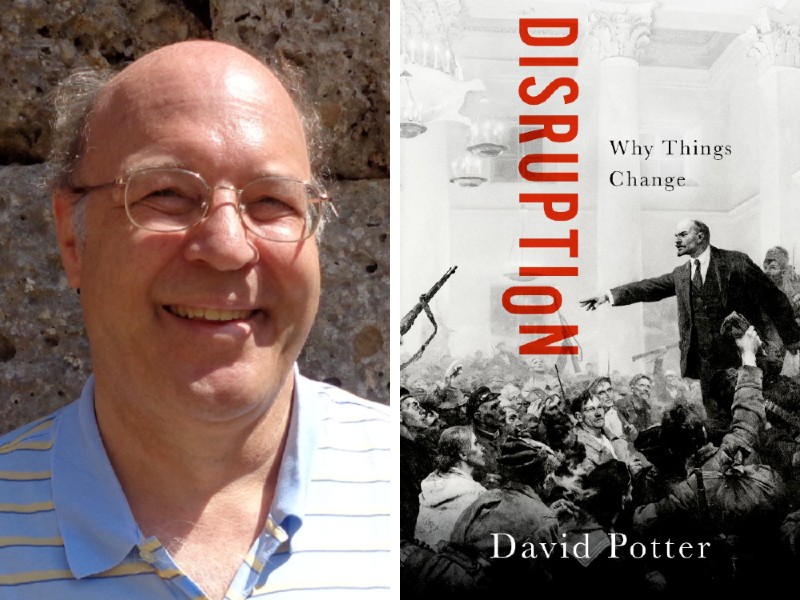
“How do things change?” asks David Potter, a University of Michigan professor, in his new book, Disruption.
This question is the basis for his in-depth examination of five groundbreaking periods in history: Christianity’s growth, the rise of Islam, the Protestant Reformation, popular sovereignty, and the political theorists Karl Marx and Herbert Spencer. The five chapters collectively span thousands of years and Potter sews together history, biography, and political thought to illustrate how ideas disrupt existing beliefs and structures.
This kind of radical change, according to Potter, arises from fringe ideas that go against the existing state of affairs with a thought leader at the forefront. Many centuries ago, political structures that are foundational to government as we know it now had yet to be defined. For example, amid the rise of Islam when Ali ibn Abi Talib, a relative of the prophet Muhammad, was assassinated in 661, Potter writes:
U-M Lecturer Philip D’Anieri's Book Maps the Appalachian Trail Through the Stories of Its Developers
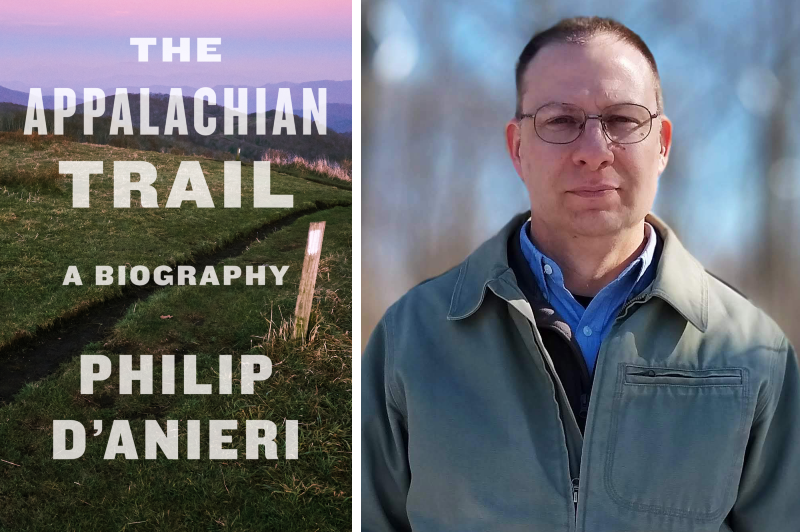
The 2,000+-mile Appalachian Trail spans the eastern United States from Georgia to Maine, traversing 14 states in total. The trail looms large in the consciousness of many people, from sightseers to thru-hikers. But how did such a major trail get created?
U-M lecturer Philip D’Anieri shows how the Appalachian Trail could not exist without the significant effort and devotion of instrumental individuals over time in his new book, The Appalachian Trail: A Biography. He provides not only facts about the contributors’ lives but also insights into who they were and what motivated them to contribute to the AT. D’Anieri also examines how the AT forms and fits into our views of nature.
Each chapter outlines how a different person (or people) helped shape the trail’s establishment. The trail’s development occurred alongside the growth of the United States, causing conflict when the trail was at odds with roads, politics, or interests of private landowners. The story begins with Arnold Guyot’s mapping of the Appalachian Mountains, as published in an article in 1861. In subsequent years, various individuals explore and build miles of trail, from the librarian Horace Kephart to Benton McKaye’s coining of the name “Appalachian Trail” in the early 1900s.
The first thru-hikers, Earl Shaffer and Emma Gatewood in 1949 and 1955, respectively, influenced the use of the AT. Another chapter depicts Senator Gaylord Nelson, who introduced legislation to federally protect the trail in the 1960s and also founded Earth Day in 1970. The book goes on to describe the challenges and successes of the National Park Service, which sought to obtain land along the AT’s corridor. Bill Bryson’s bestseller, A Walk in the Woods published in 1998, drew many to the trail, as D’Anieri writes in the penultimate chapter.
At the start and end of the book, D’Anieri reflects on the Appalachian Trail’s meaning in the public consciousness and his own engagement with the trail. In the introduction, he writes:
The places we choose, and the way we then develop and manage them, tell us a lot about what we are asking from nature, what exactly we think we are traveling toward and escaping from, where we want to strike the balance between maddening civilization on the one hand, and heartless nature on the other.
This question sets the stage for studying various individuals’ involvement in the AT’s construction.
D’Anieri finishes the book by discussing his adventures in driving the length of the trail and hiking short sections. His points that the Appalachian Trail is for everyone, and that there is much value to walking rather than driving, offer a current take on the trail. There is a great opportunity to interact with nature via the AT, to step away from our existing lives for a different outlook.
I interviewed D’Anieri to learn more about his book and the process of writing it.
Zilka Joseph’s new chapbook, "Sparrows and Dust," finds parallels between humans and birds
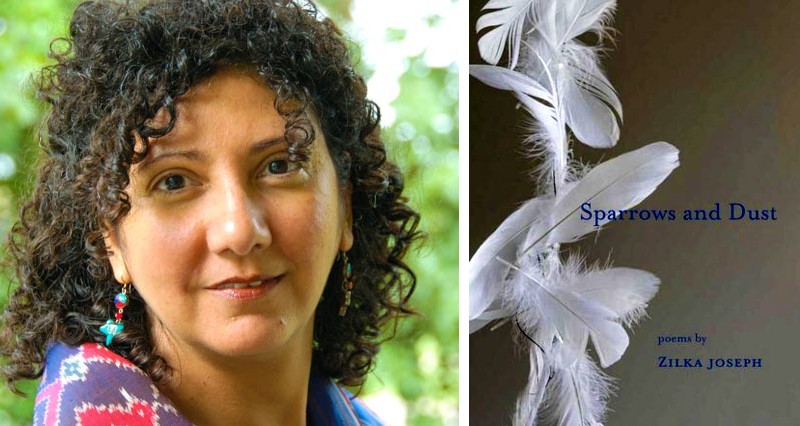
What would it be like to be a bird?
Ann Arbor poet Zilka Joseph’s new chapbook, Sparrows and Dust, imagines the parallels between human lives and the patterns of birds.
Birds become a constant in the poet’s life, from India to Michigan. Like the migrations of birds from place to place, the last poem begins with a description of the vastness of our collective lives and the places where we spend them:
Between Worlds,
and in worlds within worlds,
we live.
Throughout Joseph’s poems, all creatures are trying to make their way in the different places that form the settings for their lives. There are the geese and the poet observing them, and they are all distressed after five eggs disappear one spring. Yet being able to watch that drama play out is the result of a happy milestone of moving into a new condo for the poet.
Another poem, “Negative Capability,” wonders at flight:
open sky sun so night comes stars wheel
we spiral higher become air is this
the bird way
Arrivals and departures, and worlds appearing or disappearing, happen through flying. A hummingbird visits in another poem, “So Much,” to get “one more hit of her liquid / sugar high ill- / usion on which / her flight / depends.” Slowly we piece together what flight might be like, what sustains it, and what possibilities it offers.
Joseph’s poems sometimes alight on the birds themselves and other times show birds as metaphors, such as in the poem “Mama, Who’d Have Thought,” which speaks to the poet’s mother on how birds of prey are not a threat to safety but how police shootings and detaining children at the border are. In fact, many of the poems offer reflections on the poet’s parents.
These poems hold many moments for the admiration of nature. “Fall Now” describes that “we count kestrels overhead / one monarch sits in my palm.” Joseph asks us to notice and appreciate.
Joseph is a creative writing teacher, editor, and manuscript coach in Ann Arbor. I interviewed her about Sparrows and Dust, her teaching, and what she’s working on next.


































